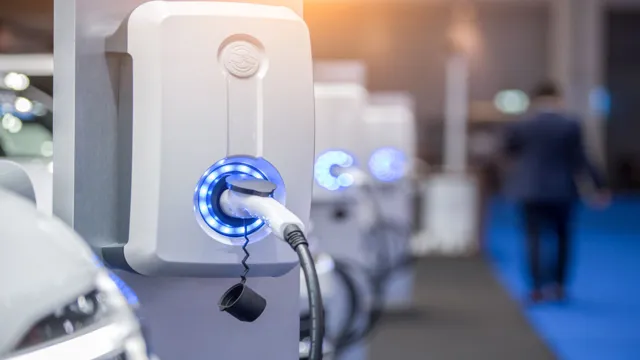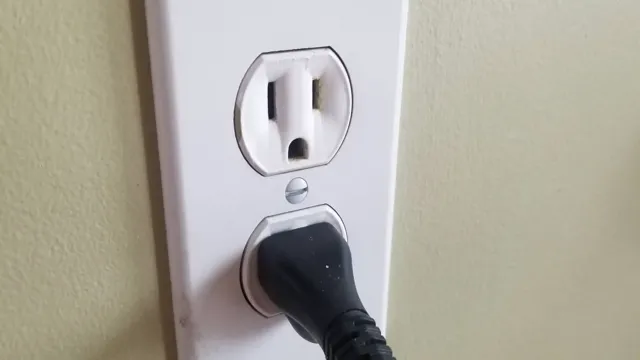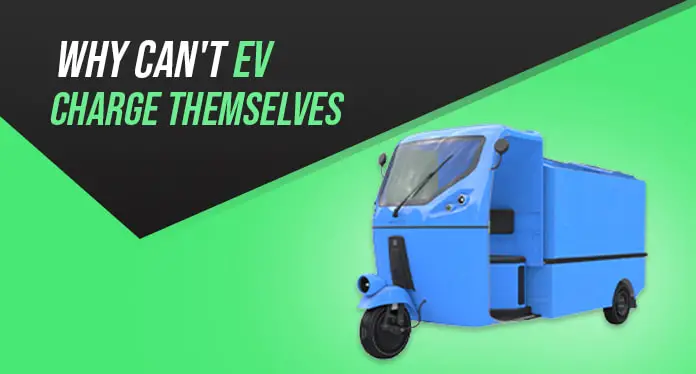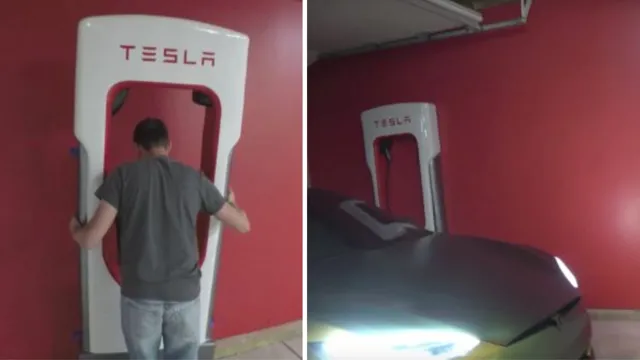Juicing Up: Unveiling the Truth About Charging Your EV on a Regular Outlet
Are you considering switching to an electric vehicle but concerned about the charging options available? One of the questions that often arise is whether your EV can be charged using a standard outlet. The answer to that question is yes, but with some limitations. While it is technically possible to charge your EV using a standard outlet, it’s not advisable for long-term use.
Most standard outlets in homes and offices are not designed to handle the high voltage and amperage required for charging an electric vehicle. This means that it will take significantly longer to charge your EV, and the process will put a considerable strain on the outlet, which could lead to overheating or even a fire hazard. However, there are some scenarios where using a standard outlet to charge your EV can be useful.
For example, if you’re on a road trip and miles away from a charging station, plugging into a standard outlet could give you just enough juice to make it to the next charging point. Also, if you’re only planning on using your EV for short daily commutes or errands, using a standard outlet to charge your vehicle overnight can help you save on installation costs for a dedicated charging station. In conclusion, while it’s technically possible to use a standard outlet to charge your EV, it’s not recommended for long-term use.
But knowing this information can help you make informed decisions about the charging options that best suit your lifestyle.
Voltage and Amperage Requirements
If you are thinking of plugging your electric vehicle (EV) into a regular outlet, you need to consider the voltage and amperage requirements. A regular outlet, also known as a household outlet, typically provides either 120 volts or 240 volts of electricity. For EV charging, you need a level 1 charger that operates on a 120-volt circuit or a level 2 charger that operates on a 240-volt circuit.
Most electric cars come with a level 1 charger that can be plugged into a regular outlet, but it may take longer to charge your car, and you may not get a full charge. It is recommended that you install a level 2 charger for faster and more efficient charging. A level 2 charger requires professional installation and a 240-volt circuit, but it will charge your car much faster.
So, can you plug your EV into a regular outlet? Yes, you can, but it’s not the most efficient or practical way to charge your electric car.
What is the Standard Voltage and Amperage for Outlets?
When it comes to electrical outlets, the standard voltage and amperage requirements may vary depending on the location, type of device, and load capacity. In North America, the standard voltage for residential outlets is 120 volts, though industrial and commercial settings may use higher voltages. The amperage rating for outlets typically ranges from 15 to 20 amps, with 20 amps being the more common rating for newer installations.
It’s important to match the device’s electrical requirements to the outlet’s capacity to prevent overloading and potential hazards. For example, high-power appliances like ovens, air conditioners, and dryers require dedicated circuits with higher amperage ratings to handle the load. Additionally, using extension cords or power strips with too many devices plugged into a single outlet can also cause overloading and increase the risk of electrical fires.
It’s always best to consult a licensed electrician if you have any concerns about your electrical system’s capacity or safety.

What are the Voltage and Amperage Requirements for Your EV?
When it comes to the voltage and amperage requirements for your electric vehicle (EV), it’s important to understand how these factors affect the charging process. The voltage requirement for EVs typically ranges from 110-240 volts, with most homes being equipped with a 120-volt outlet, which can take up to 20 hours to fully charge your car. However, using a 240-volt outlet can reduce this time significantly, with a full charge taking between 4-8 hours.
On the other hand, the amperage requirement for EVs varies based on the individual EV model, charging speed, and battery capacity. For instance, a Tesla Model S can charge at a rate of 48 amps, while other EVs may have a maximum charging rate of 30 amps. Ultimately, understanding your EV’s voltage and amperage requirements is crucial for ensuring efficient and effective charging of your vehicle.
Charging Time Using a Standard Outlet
Yes, you can plug your electric vehicle into a regular outlet, but it will take longer to charge compared to using a Level 2 charger. When using a standard outlet, it is recommended to use a Level 1 charger that comes with your EV as it is designed to safely draw power from a 120-volt outlet. Depending on the battery size and level of depletion, charging time can range from several hours to over a day, hence why Level 2 chargers are becoming increasingly popular.
However, using a standard outlet can be useful in emergency situations when out of range of a Level 2 charger or if you only need a small amount of power to reach your destination. It is important to check that your outlet is in good condition and can support the necessary voltage and amperage. Overall, it is possible to charge your EV using a regular outlet, but it may not be the most practical option for daily use.
How Long Will it Take to Charge Your EV?
If you’re considering an electric vehicle, one of your biggest concerns may be how long it will take to charge. Using a standard outlet at home, it can take anywhere from 8 to 20 hours to fully charge your EV, depending on the make and model. That’s why it’s important to plan ahead and make sure you have plenty of time to charge before you need to drive.
Some EV owners choose to install a level 2 charging station at home for faster charging times, but this can be costly. Additionally, public charging stations are becoming more common and can provide a quicker top-up if you’re on the go. Overall, charging times will vary based on several factors, but with a little planning, you can make sure your EV is fully charged and ready to go when you need it.
What Factors Can Affect Charging Time?
When it comes to charging your electric vehicles, the amount of time it takes to charge can be affected by several factors. Using a standard outlet to charge your EV will generally take longer than using a higher voltage charging station. This is because a standard outlet provides less power compared to a higher voltage charging station.
The size of the EV battery also plays a key role in charging time, as larger batteries will take longer to fully charge. The ambient temperature and the state of the battery can also affect charging times. In cold temperatures, charging times can increase, while a battery that is too hot may need to cool down before charging can begin.
It is important to consider these factors when planning your EV charging schedule to ensure that you have enough time to charge before your next journey.
How to Maximize Charging Efficiency
When it comes to maximizing charging efficiency using a standard outlet, there are a few things you can do to make the most of your charging time. First and foremost, make sure your vehicle is fully plugged in and securely connected to the outlet. This will ensure that the charging process begins uninterrupted.
You can also consider minimizing the use of other electrical devices while charging, as this will help reduce the overall load on the outlet and improve charging efficiency. Additionally, if you have access to a level 2 charger, it may be worth considering using this for a more efficient and faster charging experience. By following these simple steps, you can ensure that your EV is fully charged and ready to go whenever you need it.
Is it Safe to Charge Your EV Using a Standard Outlet?
Many people wonder if it is safe to charge their electric vehicle using a standard outlet, and the short answer is yes, but with some precautions. Standard outlets are typically 120V, while most EVs require a minimum of 240V to charge efficiently. Charging an EV using a standard outlet will take a lot longer, typically around 24 hours for a full charge, which is not always practical for many people.
Moreover, standard outlets are not designed to handle the high power demands of charging an EV, and if not done correctly, it could overload the outlet and cause a fire hazard. To avoid these risks, EV owners can install a dedicated 240V outlet, which can charge their vehicle significantly faster and safely. Moreover, it is always advised to have a licensed electrician inspect the wiring and outlets before plugging your EV into the power network.
Overall, while it is possible to charge an EV using a standard outlet, it is strongly recommended to use a dedicated outlet designed for EV charging to ensure safety and efficiency.
Safety Concerns when Charging Using a Standard Outlet
Charging your electric vehicle using a standard outlet can be safe, but there are safety concerns that you should consider. Firstly, standard outlets are not specifically designed for charging electric vehicles and may not have the necessary grounding and protection required. Secondly, charging an EV using a standard outlet can put a considerable amount of stress on the outlet and its wiring, leading to potential overheating and fire risks.
Lastly, charging an EV with a regular outlet may take longer, and the vehicles are usually left unattended while charging, increasing the likelihood of an accident occurring. Therefore, it is recommended to use a dedicated charging station for your EV, as it is specifically designed for fast and safe charging. Additionally, a dedicated charging station will also provide a consistent and reliable power source, ensuring you can confidently and safely charge your electric vehicle.
In conclusion, while charging your EV using a standard outlet may be possible, the risks involved are significant, and investing in a dedicated charging station is a safer option for you and your EV.
Precautions to Take when Charging Using a Standard Outlet
Charging your electric vehicle using a standard outlet at home may appear convenient, but it requires some precautions to ensure safety. The key is to use an outlet that can handle the power required to charge your EV and avoid overloading the circuit, which can lead to electrical problems such as a blown fuse or even a fire hazard. If the outlet is not grounded or shows signs of damage, avoid using it for charging.
Additionally, never charge your EV in wet or damp conditions, and always monitor the charging process to avoid overcharging the battery, which can cause damage. Remember to follow the manufacturer’s guidelines for charging your EV and take the necessary precautions to ensure a safe charging experience. Ultimately, it is safe to charge your EV using a standard outlet at home as long as you take the right precautions and practice safety measures.
Conclusion
In conclusion, while it is technically possible to plug your EV into a regular outlet, it is not the most practical or efficient solution. Just like you wouldn’t try to run a marathon in flip flops, it’s important to equip your EV with the proper charging equipment to ensure peak performance. So while you might be able to get away with a regular outlet in a pinch, it’s always best to invest in the right tools for the job.
After all, your EV deserves the very best, just like you deserve comfortable shoes for that marathon.”
FAQs
What kind of outlet do I need to charge my EV?
You can charge your EV using a standard 120-volt outlet, but it will take longer to fully charge than using a 240-volt outlet.
Can I charge my EV from a regular household outlet?
Yes, you can charge your EV from a regular household outlet, but it will take longer to fully charge than using a dedicated EV charging station.
How many miles of range can I expect to get from a full charge using a regular household outlet?
The number of miles you can get from a full charge using a regular household outlet will depend on the make and model of your EV, as well as driving conditions and habits. However, you can typically expect to get around 3-4 miles of range per hour of charging.
Do I need a special adapter to charge my EV from a regular outlet?
No, you do not need a special adapter to charge your EV from a regular outlet. However, you may want to consider purchasing a high-quality extension cord if your outlet is not located near where you park your EV.






